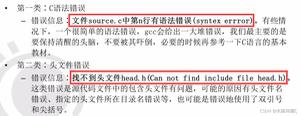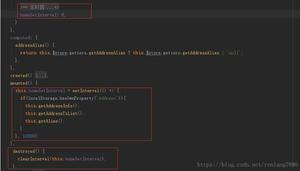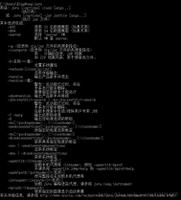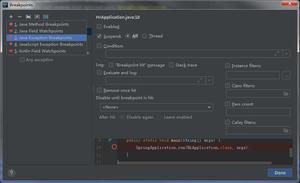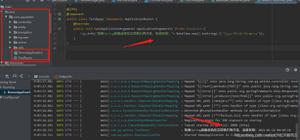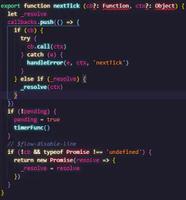React Hooks与setInterval

前言
Hooks出来已经有段时间了,相信大家都用过段时间了,有没有小伙伴们遇到坑呢,我这边就有个 setInterval 的坑,和小伙伴们分享下解决方案。
前言
写个 count 每秒自增的定时器,如下写法结果,界面上 count 为 1 ?
function Counter() { let [count, setCount] = useState(0);
useEffect(() => {
let id = setInterval(() => {
setCount(count + 1);
}, 1000);
return () => clearInterval(id);
}, []);
return <h1>{count}</h1>;
}
https://codesandbox.io/embed/hooks-setinterval-error-w4qu6
如果某些特定值在两次重渲染之间没有发生变化,你可以通知 react 跳过对 effect 的调用。就是将第二个参数改成 [] ,类似于更接近类组件的 componentDidMount 和 componentWillUnmount 生命周期,只执行一次。 effect 的第二个参数中传入的值就是 它更改的话, effect 也会重新执行一遍的值。
因为 Effect 的第二个参数为 [] ,没有依赖, Effect 只会执行一次。 setInterval 中拿到的count 永远是 0 ,界面会一直显示 1 ,如下所示:
function Counter() { let [count, setCount] = useState(0);
useEffect(() => {
let id = setInterval(() => {
setCount(0 + 1);
}, 1000);
return () => clearInterval(id);
}, []);
return <h1>{count}</h1>;
}
那有些小伙伴会说,如果我们直接往第二个参数加 count 呢
function Counter() {//...
useEffect(() => {
let id = setInterval(() => {
setCount(count + 1);
}, 1000);
return () => clearInterval(id);
}, [count]);
//...
}
这样效果是对的,但是性能不好。每当 count 更改了, useEffect 就会渲染一次,定时器也会不停的被新增与移除。如下所示:
//第一次function Counter() {
//...
useEffect(() => {
let id = setInterval(() => {
setCount(0 + 1);
}, 1000);
return () => clearInterval(id);
}, [0]);
//...
}
//第二次
function Counter() {
//...
useEffect(() => {
let id = setInterval(() => {
setCount(1 + 1);
}, 1000);
return () => clearInterval(id);
}, [1]);
//...
//第N次
}
那到底要怎么做才能有保障性能,定时器只监听一次,又使定时器起作用呢?
方案一、函数式更新
useState 中的set方法可接收函数,该函数将接收先前的 state ,并返回一个更新后的值。这样定时器每次拿到的是最新的值。
function Counter() {let [count, setCount] = useState(0);
useEffect(() => {
let id = setInterval(() => {
setCount(v => {
return v + 1;
});
}, 1000);
return () => clearInterval(id);
}, []);
return <h1>{count}</h1>;
}
https://codesandbox.io/embed/hooks-setinterval-usestate-grres
方案二、用useRef
useRef 返回一个可变的 ref 对象,返回的 ref 对象在组件的整个生命周期内保持不变。
将定时器函数提取出来,每次定时器触发时,都能取到最新到 count .
function Counter() { let [count, setCount] = useState(0);
const myRef = useRef(null);
myRef.current = () => {
setCount(count + 1);
};
useEffect(() => {
let id = setInterval(() => {
myRef.current();
}, 1000);
return () => clearInterval(id);
}, []);
return <h1>{count}</h1>;
}
https://codesandbox.io/embed/hooks-setinterval-useref-cgif3
思考:为什么不直接 setInterval(myRef.current, 1000) 这样写不行呢,还要包个方法返回?
function Counter() { let [count, setCount] = useState(0);
const myRef = useRef(null);
myRef.current = () => {
setCount(count + 1);
};
useEffect(() => {
let id = setInterval(myRef.current, 1000);
return () => clearInterval(id);
}, []);
return <h1>{count}</h1>;
}
https://codesandbox.io/embed/hooks-setinterval-useref-error-52dm0
下面的例子可以很好的解释。假如把 myRef.current 为 cur 变量,定时器的第一个参数为 interval 变量, cur 变量更改, interval 的取的还是之前赋值的值。
var cur=()=>{var count=0;console.log(count)};var interval=cur;
var cur=()=>{var count=1;console.log(count)};
interval();//0
var cur=()=>{var count=0;console.log(count)};
var interval=()=>{cur()};
var cur=()=>{var count=1;console.log(count)};
interval();//1
方案三、自定义hook
可以写个自定义 hook ,方便重复使用。
function useInterval(fun) { const myRef = useRef(null);
useEffect(() => {
myRef.current = fun;
}, [fun]);
useEffect(() => {
let id = setInterval(() => {
myRef.current();
}, 1000);
return () => clearInterval(id);
}, []);
}
function Counter() {
let [count, setCount] = useState(0);
useInterval(() => {
setCount(count + 1);
});
return <h1>{count}</h1>;
}
https://codesandbox.io/embed/hooks-setinterval-ownhooks-0tpxe
佛山vi设计https://www.houdianzi.com/fsvi/ 豌豆资源搜索大全https://55wd.com
方案四、用useReducer
将 count 变量存入 reducer 中,使用 useReducer 更新 count
function reducer(state, action) { switch (action.type) {
case "increment":
return state + 1;
default:
throw new Error();
}
}
function Counter() {
const [state, dispatch] = useReducer(reducer, 0);
useEffect(() => {
setInterval(() => {
dispatch({ type: "increment" });
}, 1000);
}, []);
return <h1>{state}</h1>;
}
以上是 React Hooks与setInterval 的全部内容, 来源链接: utcz.com/z/382681.html


